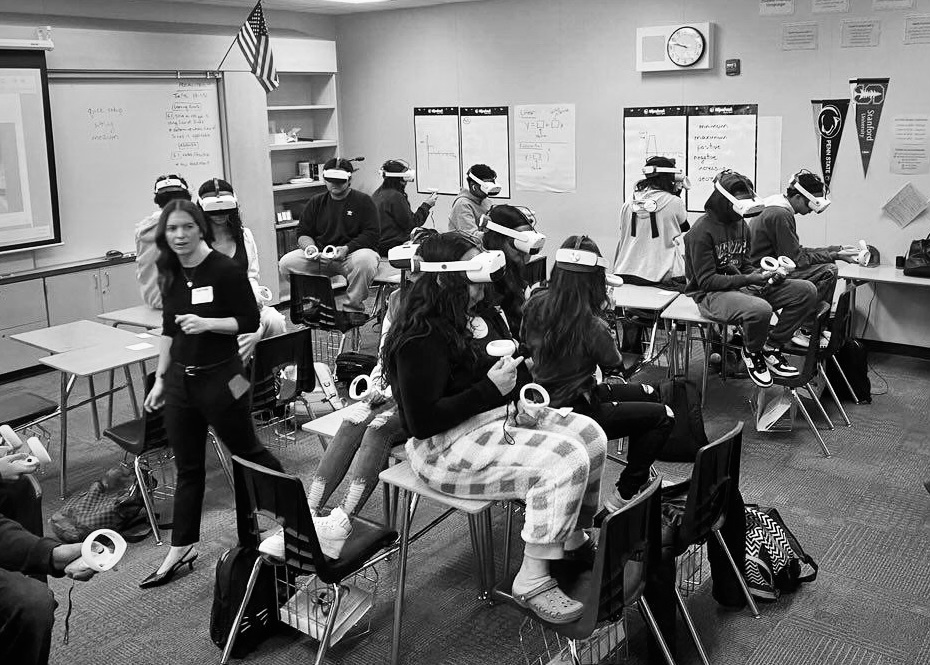A new way of learning appears to be on the horizon for SCHS Algebra 1 classes. With the latest introduction to virtual reality technology, Algebra 1 students and teachers are walking a new journey together as they learn to capitalize and navigate what is potentially a groundbreaking discovery in learning.
Virtual reality headsets accompanied with joysticks allow for a new level of immersive learning. Algebra 1 students are now able to calculate slope on a graph physically visualizing solving equations.
When math teacher Lauren Hasty initially caught wind of the sudden shift in classrooms, there were mixed emotions.
“I was a little hesitant. It felt like it was another thing I’d have to do, that would take away time from the stuff that I’m supposed to do already,” Hasty said.
After trying the technology for himself and seeing his students excited, Hasty plans to accept the new step in learning with an open mind and eagerness to get kids excited to learn.
“I think it has a great potential to aid the students,” Hasty said. “I have changed my initial idea about it which was: When are we going to be able to fit this in?”
Although only having completed the VR’s tutorial stage, many students shared their feelings about how this technology will influence their peers. Freshman Raul Porticillo believes the new technology has the potential to improve test scores and appreciates the freedom given to students to learn in their own way.
“In today’s world, it’s a lot of paperwork and listening to the teacher, but we are able to actually experience everything by ourselves,” Porticillo said.
Monica Albiter sees the usage of the tech being able to boost morale and performance.
“I think it will be able to improve test scores because people like being engaged,” Albiter said.
Currently only being used in Algebra 1 classrooms, the VR technology may help pave the way for a future where students are able to reach their full potential with previously unseen methods.
Freshman Nicolas Young found himself excited and ready to learn after the first session. Eager to continue, Young is optimistic to see how VR may change students’ perceptions regarding their math subjects.
“Math bores people, so I think it would be pretty good for people to be learning in an interactive way,” Young said.


